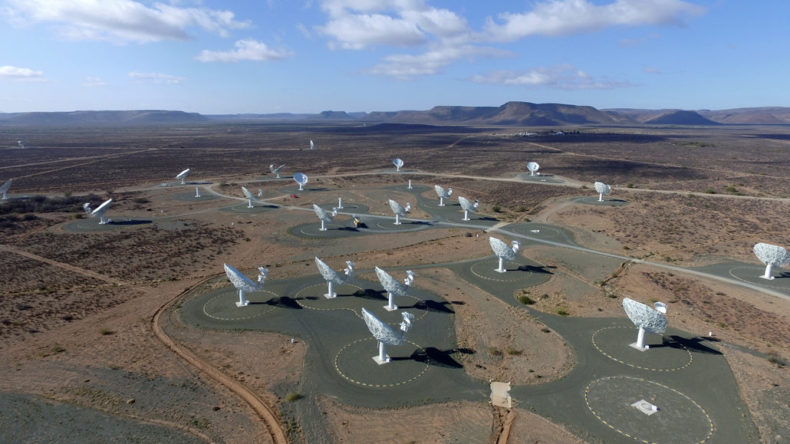
The TESS telescope is a shiny little thinking metal tube, drinking the light of 20 million stars in our cosmic neighborhood. It launched last year on a voyage to identify planets that look like this one—a miraculous feat, if it succeeds. Among the panoply of planets found so far, there is positively no place like home.
TESS is looking for other Earths, but the real goal, long-term, is to find a planet with something breathing on one of those Earths. Astronomers are careful not to say that too explicitly, though. They say TESS is merely a planet hunter; it will seek out new worlds, which will be explored in more detail later, by other, more capable telescopes.
Given that, an announcement this week caught my eye: TESS is teaming up with Breakthrough Listen, a well-heeled SETI effort that will probably be the money behind the discovery of an alien civilization.
Breakthrough Listen is funded by a Russian billionaire named Yuri Milner, and it uses a variety of radio and optical observatories to search for evidence of technologically capable life. The idea behind it, and all SETI programs, is that if anyone else is out there, maybe they’re looking for us just like we’re looking for them. If they are, and we get lucky, we might see their signals. SETI is the Search for Extraterrestrial Intelligence.
TESS looks for planets by studying lightcurves, which are blips in the light of a star as a planet passes in front of it, or “transits” it. TESS measures lightcurves for 20,000 stars every 2 minutes. The brightness of every pixel in its four wide-field cameras is recorded every 30 minutes. This is, to put it in scientific terms, a crap-ton of stars.
As TESS hums along, merrily capturing snapshots of fantastic new planets we can only see in our imaginations, radio telescopes on Earth will swing into action. Some of the TESS planets will be added to Breakthrough Listen’s target list. In some cases, TESS will be able to figure out some details of the planets’ geometry, which will help Listen’s telescopes predict where and when to look for a message from beyond. Listen observatories will look at some of the TESS lightcurves to see if they show anything weird, like a broken-up moon or an “alien megastructure” around the star. TESS is basically a wide-field weirdness detector, so this new partnership might keep Listen pretty busy.
And the search will, as the press release says, “provide more meaningful statistics in the event of non-detections.”
Non-detections are, as we say in my house, “a fancy word” for nothing. A non-detection just means we have seen nothing. It is, actually, ironically, a lot to take. We’re all alone here. We’re it! At least for now, we are it. No one has called; no one has reached out across the vast and uncaring expanse to say hello, or U UP, or anything at all. And still we have hope. I have written a lot about this. But I keep coming back to it. I will keep coming back to it. Probably forever.
There is something so heartbreaking, so achingly sad, so full of yearning, so fundamentally human about this sentiment. A whole lot of nothing and we are positively undaunted. Five billion years of solitude, as my editor so eloquently put it. Nothing but noes, a lot of null results, a lot of false positives, a lot of loneliness and failure and broken dreams. And yet the search continues.
The problem, or maybe the good news, is that you can’t prove a negative. The only way to find out whether we are alone, whether we are some grand cosmic fluke the likes of which will never come again, is to have a POSITIVE result. How do you tell people to stop yearning for that?
You don’t, I suppose. You can’t. So you watch, and you listen, and you wait, and you wonder, and you hold on–just a bit–to hope.
—
Image: MeerKAT Array, via South African Radio Astronomy Observatory
I sometimes wonder, even with all the EM noise we make now, whether or not *we* are visible from another star…